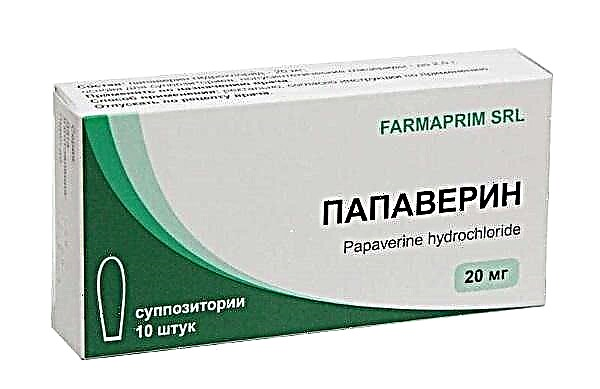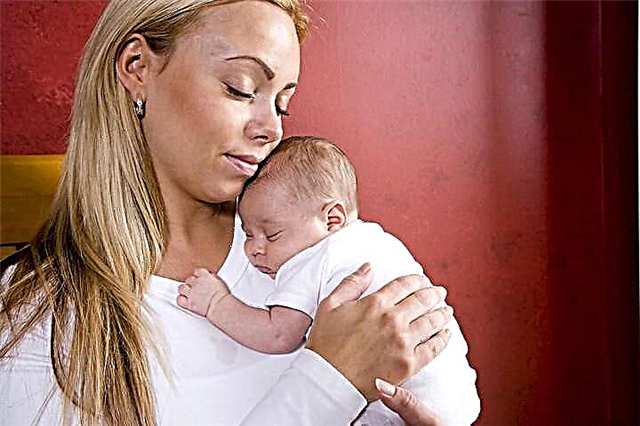Potatoes are considered beneficial for a child if they are introduced into the diet in a timely and correct manner. There are nutritional norms for babies that you should pay attention to when planning a menu. Young parents know better from how many months they can give their child mashed potatoes, in what quantities and how to properly prepare the dish so as not to harm the baby.

Baby
Why potatoes are useful for babies
Potatoes, like other vegetables, contain a lot of vitamins and nutrients. Previously, it was one of the first introduced into the diet of children and was offered to crumbs almost daily. But it is quite high in calories, contains a lot of proteins and carbohydrates. For the baby's digestive system, meals from it are considered heavy. Therefore, you do not need to enter it too early.
Composition and nutritional value
Potatoes contain potassium, magnesium, phosphorus, calcium, B vitamins, ascorbic acid. They are required for growth, the formation of immunity, the development of the nervous system. In addition, the fiber that is part of the composition helps to establish digestive functions. Plant fibers help to remove toxins from the body.
Choosing potatoes for cooking babies
For cooking, babies need to choose potatoes carefully:
- Avoid rotten vegetables
- Do not take root vegetables with black spots;
- Old potatoes will not work;
- Even adults should not eat vegetables that have been in the sun for a long time. They turn green as a result of corned beef build-up. This substance can be toxic to the body. It is always found in potatoes, as well as in eggplants and tomatoes, but its concentration increases with prolonged exposure to scorching rays. There are different opinions about getting rid of potatoes from poison. Some believe that heat treatment removes the dangerous substance from the vegetable, while others believe that exposure to temperatures does not help. In any case, it is better not to experiment with the health of the baby and put the green tuber aside.

Green potato
It is better to take potatoes from your own garden or from friends to be sure there are no nitrates. Otherwise, you need to soak the vegetable for about 10-12 hours. Change the water periodically, pouring fresh water. Out of season, many doctors advise feeding babies mashed potatoes in jars, when buying which you need to carefully study the composition.
Adding mashed potatoes to complementary foods
It is not recommended to start complementary foods with mashed potatoes. First, you need to introduce the baby to other vegetables:
- cauliflower;
- broccoli;
- zucchini.
In this case, you need to carefully monitor the reaction of the crumbs. If the baby accepts the new food for him well, go to cereals. It is advised to start with corn, buckwheat, rice. The first cereals should be dairy-free. After gradually introducing these products, you can move on to potatoes. Although it is famous for its high content of vitamins and minerals, the starch that is part of it can harm the digestion of the crumbs. Therefore, you should not rush to add it to the diet.
From how many months to introduce potatoes into complementary foods, depends on the type of nutrition of the baby, he eats mother's milk or an adapted mixture.
Breastfed
Children who eat exclusively mother's milk are recommended to start complementary foods no earlier than six months. Until that time, mother's milk provides them with everything they need. In addition, the enzyme system at this age becomes more perfect.
Potatoes are added to food at the age of 7-8 months:
- You need to start acquaintance with a new dish with a small portion, for the first time, give the child half a teaspoon;
- The consistency should resemble a puree soup;
- Like any new product, it should be offered in the morning. This will help track the baby's reaction and take action in case of allergies. At this time, there is no need to introduce the child to other products. It is also advised to postpone the introduction of new dishes during illness and tooth growth. The baby must be healthy and calm.

Healthy baby
Note! You don't need to give your baby potatoes every day. The best option is 1-2 times a week. The next day, complementary feeding of mashed potatoes with a normal reaction, you can offer him a whole teaspoon.
It is better to postpone the introduction of potatoes into the diet for children who are overweight. A starchy vegetable will only make matters worse.
Bottle-fed
Bottle-fed babies get to know adult food earlier than breastfed babies. They usually start complementary foods at the age of 4-4.5 months. The scheme does not change, first the child is offered green vegetables, then dairy-free cereals. Mashed potatoes can be given to a child when he gets acquainted with these products, gets used to them. Sometimes it is recommended to start complementary foods in a different order. For example, if a baby is not gaining weight well, pediatricians advise giving cereal first. In any case, it is better to introduce potatoes after them, do not rush to introduce the child to mashed root vegetables for up to six months.
At 6-7 months, you can offer the crumbs a small portion of a potato dish for trial. There is no need to be upset if the baby does not appreciate the new product and turns away. After a while, his tastes may change. You should not force-feed a child, this will discourage him from food interest.
Making mashed potatoes for babies
It is most useful to boil potatoes in their uniforms, this way the maximum of useful properties and vitamins will be preserved. This method is suitable when using a root crop from your garden, when you are sure that it has not been treated with harmful substances. Before cooking, the potatoes must be washed well and sent to a pot of water.
If you have to cook from purchased vegetables, it is better to peel and soak them in cool water in advance. This will not only get rid of nitrates, but also reduce the starch content, which overloads the infant's imperfect digestive system. Keep potatoes in water for at least 3-4 hours.

Soaking potatoes
Note! The more soak, the less starch and nitrates will remain, but at the same time the nutritional value of the product decreases.
How much to cook
Boil the potatoes until soft. It should be easily pierced with a fork or knife. Usually 20 minutes is enough for this. Long cooking time will not make it more tasty, but will deprive it of vitamins and nutrients.
Recipe
To cook mashed potatoes for babies at home, you need to boil the vegetable until tender. Whether in uniform being cooked or peeled, it should be soft. After that, heat it, adjusting the density of the dish with potato broth. The puree should turn out to be liquid and not have lumps so that the crumb does not choke. Until a year, salt is not recommended to use. It is allowed to add a little vegetable or butter after 7-8 months.
Note! You can always pour some breast milk or formula into the puree. The kid will feel the familiar taste and will be more happy to try a new dish.
You don't need to beat the potatoes with a mixer - this will not only deprive them of their benefits, but also make them viscous and sticky. A kid cannot cope with a dish of this consistency.
You can boil chopped potatoes with the courgette, adding the latter to the pot a little later. The squash takes no more than 7-10 minutes to soften. After the vegetables are cooked, heat them. Remember to remove the seeds from the vegetable marrow. For babies, even zucchini is best cut off the skin.
As soon as the baby adapts to the new food, you can cook a thicker puree, but it is better to refrain from spices. If your child doesn't like the taste, it's best to experiment with combinations with other vegetables. The main thing is to feed him with what he likes, and do not forget to offer other dishes so that the loved ones do not become boring.
Norms for complementary foods by month
The baby is constantly getting acquainted with new products and flavor combinations. There is no need to rush him, trying to quickly introduce all the products. Some children are happy to eat mashed potatoes, others refuse, preferring to eat porridge.

The baby is eating
How often to give
It must be remembered that you do not need to give mashed potatoes every day:
- It is recommended to cook potato dishes twice a week;
- Children prone to overweight should be offered them once every seven days.
Despite the invaluable benefits, the high-calorie product is difficult to digest. The starch in potatoes provides the body with carbohydrates. When they are in excess in the body, fat accumulates, which leads to weight gain.
Number
For the first time, you need to offer the baby about 5 grams of puree or half a dessert spoon. Gradually, you can increase the number of servings, bringing up to 80 grams for the seventh meal. That is, at 8-9 months, the baby is allowed to eat 120-130 grams of mashed potatoes per week. The permissible volume increases to 200 grams per year. You can feed the baby until satiety, how much he will eat. Usually a 200 gram serving is more than enough, you shouldn't give it every day.
The famous children's doctor Komarovsky urges to remember that up to one year old a child is just getting to know new food, learns taste combinations, consistency. His diet is based on breast milk or formula. Therefore, you do not need to chase the norms, it is better to know them, but focus on your own child, his appetite and preferences.
Note! The baby is just fed, given food that serves as an addition to the mixture or milk.
What can be combined with
Mashed potatoes are better absorbed with other vegetables familiar to the baby. So it goes well with broccoli. Not all children love healthy cabbage, and they rarely refuse puree soup. Apart from potatoes and broccoli, it does not require any other ingredients. Its consistency is regulated by water.

Broccoli and potato soup
Also, the root vegetable is combined with:
- other types of cabbage: cauliflower, white cabbage;
- carrots;
- zucchini;
- beets;
- pumpkin.
The main thing is that all the ingredients are familiar to the child. Once he has mastered the food separately, you can combine them, coming up with new dishes.
After 9 months, when the meat is introduced, it is added to the potatoes. Then the baby gets a full lunch or dinner. Potatoes with meat is a universal dish for all times.
Potential problems when introducing potatoes
Potatoes are considered a low-allergenic food, they are usually allowed to be used in dietary meals. In rare cases, after using it, a baby may develop a negative reaction. This is usually due to starch. Allergies can appear even at the age of 2-3 months if the nursing mother eats a lot of potatoes. Even then, the baby may develop colic and rash. Under such circumstances, it is worth introducing the baby to the vegetable with caution, carefully observing the changes. It is better to refuse dishes with potatoes for up to a year. Perhaps by this time the baby will outgrow and react normally to the product.
Signs of allergies
Allergies can be suspected by the presence of the following signs:
- Decreased appetite, its complete loss may also occur;
- Increased gas formation;
- Colic;
- Restless sleep;
- Upset stool, while the color, consistency change, an unpleasant odor appears;
- Belching.
The baby reacts in this way not only to mashed potatoes, but also to milk if mom abuses starchy vegetables. To get rid of unpleasant symptoms, you need to completely eliminate the allergen. You can also speed up its removal from the body by using sorbents. Some formulas that artificial children eat contain starch, which can cause allergies.
Also, among the consequences of eating potatoes, in rare cases, there can be observed:
- Nausea, vomiting;
- The appearance of red spots on the skin, they usually flake off and are most often on the cheeks. A rash can form near the lips;
- Nasal congestion, runny nose, persistent sneezing;
- Swelling of the mucous membranes of the nasopharynx.

Allergy symptoms
If a similar reaction is noticed in a child, then you need to contact a pediatrician. If necessary, he will refer you to a narrow specialist - an allergist. It is important to relieve symptoms and exclude a product, the use of which leads to negative consequences. If it is determined that these are potatoes, the following foods should be used with caution:
- tomatoes;
- eggplant;
- apples and pears.
Note! The allergy does not necessarily remain with the child for life, usually the symptoms disappear after 5-6 years, and the baby can be safely given potatoes.
High glycemic index
The glycemic index of foods indicates the degree to which carbohydrates influence sugar formation. With its sharp growth, a lot of insulin is required. It converts sugar to form fat cells. Potatoes, especially boiled ones, have a high glycemic index. Therefore, it is contraindicated for diabetics and people prone to obesity. Reduces the rate of prolonged soaking of raw vegetables. If a child is rapidly gaining weight, an increase in blood sugar is dangerous for him, then you should not introduce potatoes into the diet.
When complementary foods appear, a lot of questions and doubts arise. In order not to worry at what age you can give potatoes and other vegetables to a baby, to be sure of the correctness of actions, you need to study the recommendations of the pediatrician and focus on the needs of the child. If allergy symptoms appear, you should immediately consult a doctor, only he can choose the right treatment.



